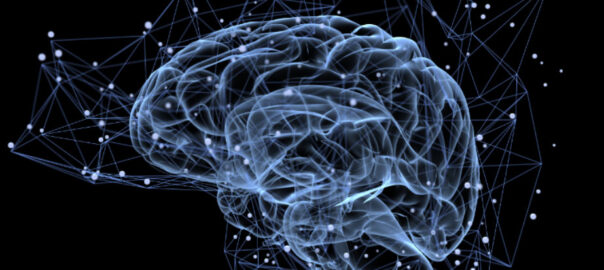
The Brain as a Prediction Machine
Your brain’s most important job is to keep your body alive. To do this, the brain devotes most of its energy predicting what will happen next so that you are prepared to act. And in the survival game, prediction beats reaction.
The content of this section, unless indicated, represents Robert Ornstein’s award-winning Psychology of Evolution Trilogy (God 4.0, The Evolution of Consciousness and The Psychology of Consciousness) and Multimind. It is reproduced here by kind permission of the Estate of Robert Ornstein.
Your brain’s most important job is to keep your body alive. To do this, the brain devotes most of its energy (some estimate 60–80%), predicting what will happen next so that you are prepared to act. This is efficient: an animal that has prepared its movement before a predator attack is more likely to survive. In the survival game, prediction beats reaction. Your brain is constantly creating its own Imaginal world and preparing for action. When walking, your brain is already anticipating how your foot will land. The brain compares its guesses to the sensory information from the external world as well as from your body. Fortunately, unless you are a toddler learning to walk or injured, the prediction is usually correct. If it is wrong, you may stumble.
Right now, as you read this text, your brain is predicting what word might come next based on your lifetime experience in reading. If the next sentence ping contains an anomaly—something that you would not have expected based on your experience—then you might notice it as an “error” in prediction. Did you? Perhaps it is a grammatical or spelling error, or you may learn a new word which you can then use to predict what you might read in the future. In a sense, your experience right now is being predicted by what your brain learned long—or even a moment—ago.
Remember, each of us develops, maintains and lives inside a virtual Imaginal world that’s shaped by our past experiences and the culture(s) in which we are embedded. As sensory stimulation reaches the unconscious brain, it gets to work—comparing input with what it already “knows.”
Thus the “predictive brain” evolved to avoid constantly expending large amounts of energy on processing incoming sensory signals from scratch. As we said at the beginning of this section, our senses operate to notice change: “Call me when something new happens.”
The brain uses the Imaginal model, moment by moment, to try to predict the sensory signals. They call this new theory “interoceptive predictive processing.”
As cognitive philosopher Andy Clark says in his book The Experience Machine: How Our Minds Predict and Shape Reality:
… the brain is constantly trying to guess how things in the world (and our own body) are most likely to be, given what has been learned from previous encounters. Everything that I see, hear, touch, and feel—so this new science suggests—reflects hidden wells of prediction. If the expectations are sufficiently strong, or the sensory evidence sufficiently subtle, I may get things wrong, in effect overwriting parts of the real sensory information with my brain’s best guess at how things ought to be.
Think about hearing a familiar song playing softly on the radio while you are in the shower. The familiar song will sound a lot clearer and crisper than an unfamiliar one. This is an example of the brain using what it already knows about how that specific song, even as sung by that specific singer. Your brain fills in the gaps. It is using prior knowledge to add lots of confidently forecast sonic information.
Obviously, when our predictions are wrong, the brain has to come up with a new prediction, a new understanding—and we’ll talk about that later.
The brain anticipates the use and replenishment of key resources for maintaining homeostasis. For example, we experience thirst and so have a drink, then we almost immediately feel less thirsty even though the water has had no time to effect any real change. This is because we have the sensation of being thirsty and of quenching our thirst ahead of actually needing water.


Your Brain’s Micro and Macro Predictions—Lisa Barrett
